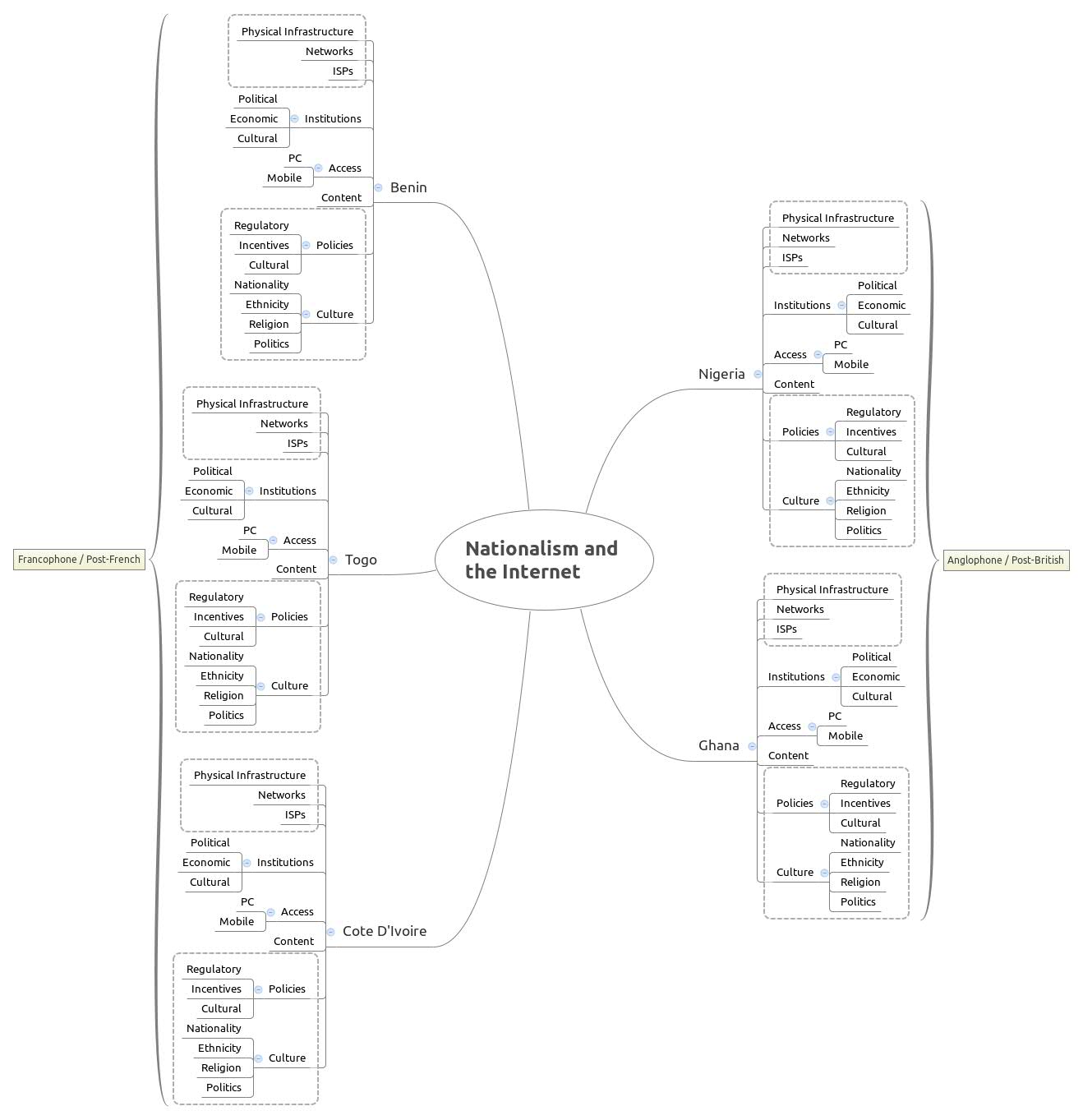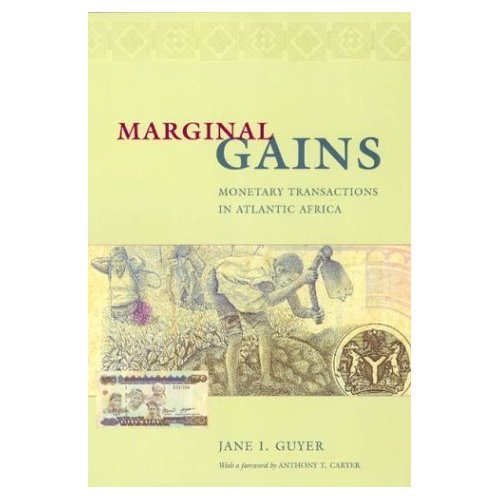I am conducting case studies on the effect of nationalism on ICTs in Western Equatorial Africa, as first proposed here and then mapped here.
Category Archives: Africa


Case Studies
An outline of the path for the rest of the semester and for this research paper, mapped out here.
Reflection – NWICO to WSIS
The MacBride Commission’s 1980 report to UNESCO, which formulated the basis for the New World Information and Communication Order (NWICO), and eventually for the WSIS, concentrated on global issues of media and communication. Among the many themes investigated in the report that resonate today, the role of international governance bodies for both fostering and regulating media and communications stands at the fore. In particular, a lingering dissonance between institutions’ stated purposes and their effective practices highlights the longest-standing struggles incumbent upon global IT governance.
Continue reading
Proposal – National Webs and Continental Institutions in the African Atlantic
The global scope of digital communications technologies arises in concert and conflict with the international institutions, policies, and market conditions that sustain the development and implementation of each layer of that technological stack. From transfer control and internet protocols to the cables themselves that provide their physical backbone, each element of contemporary information/communication technologies has undergone significant deliberation and evolution. While adoption of mature, stable ICTs continues to grow, it is not yet a fact of life for the vast majority of the world’s citizens. However, the negotiations of global governance institutions over these technologies, both private and transparent, have lasting impacts on the conditions of access to new communication opportunities and the ability to implement technological responses to developmental, political, economic, and social problems at the local level. Continue reading

Charts
This collection of visualizations of open data feeds some background work for the dissertation proposal. It’s an attempt to find open areas for questioning. Some issues that can be noted from these graphs: Why does the pattern of Internet adoption in the region under discussion diverge from that of the global aggregate? What are the mutual effects of human development, political changes, economic patterns, and technological movements over time? Finally, what, if anything, do these numbers tell us about the relations between those in power and those without power in the region? Though the straightforwardly quantitative measurements here appear simplistic, the concatenation of assumptions and abstractions that found them lead to further complexity, not less. So:
The relative positions of the countries that I am studying, in terms of the U.N. Human Development Index:

Reflection – Jane Guyer
The economic anthropology of Jane Guyer, concentrated on Africa’s western and equatorial regions, finds rich expression in this collection of the Lewis Henry Morgan lecture series delivered at the University of Rochester some fifteen years ago. Guyer’s methodological reflexivity brings her implicit and explicit critique to bear on both traditional anthropology and traditional economics, the result of which is a nuanced, multivariate logic of exchange and decision-making that brings close contextualization to the fore of questions that might otherwise veer impossibly into the abstract. Historically grounded and empirically driven, Guyer elucidates the curious interplay between formal and informal markets in Atlantic Africa, particularly the role of circulation of multiple currencies at once. Continue reading